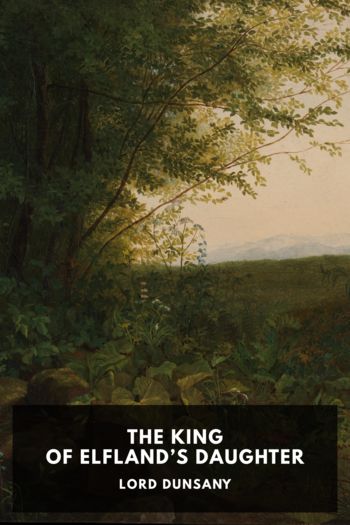Orthodoxy - G. K. Chesterton (literature books to read .txt) 📗

- Author: G. K. Chesterton
Book online «Orthodoxy - G. K. Chesterton (literature books to read .txt) 📗». Author G. K. Chesterton
Darwinism can be used to back up two mad moralities, but it cannot be used to back up a single sane one. The kinship and competition of all living creatures can be used as a reason for being insanely cruel or insanely sentimental; but not for a healthy love of animals. On the evolutionary basis you may be inhumane, or you may be absurdly humane; but you cannot be human. That you and a tiger are one may be a reason for being tender to a tiger. Or it may be a reason for being as cruel as the tiger. It is one way to train the tiger to imitate you, it is a shorter way to imitate the tiger. But in neither case does evolution tell you how to treat a tiger reasonably, that is, to admire his stripes while avoiding his claws.
If you want to treat a tiger reasonably, you must go back to the garden of Eden. For the obstinate reminder continued to recur: only the supernatural has taken a sane view of Nature. The essence of all pantheism, evolutionism, and modern cosmic religion is really in this proposition: that Nature is our mother. Unfortunately, if you regard Nature as a mother, you discover that she is a stepmother. The main point of Christianity was this: that Nature is not our mother: Nature is our sister. We can be proud of her beauty, since we have the same father; but she has no authority over us; we have to admire, but not to imitate. This gives to the typically Christian pleasure in this earth a strange touch of lightness that is almost frivolity. Nature was a solemn mother to the worshippers of Isis and Cybele. Nature was a solemn mother to Wordsworth or to Emerson. But Nature is not solemn to Francis of Assisi or to George Herbert. To St. Francis, Nature is a sister, and even a younger sister: a little, dancing sister, to be laughed at as well as loved.
This, however, is hardly our main point at present; I have admitted it only in order to show how constantly, and as it were accidentally, the key would fit the smallest doors. Our main point is here, that if there be a mere trend of impersonal improvement in Nature, it must presumably be a simple trend towards some simple triumph. One can imagine that some automatic tendency in biology might work for giving us longer and longer noses. But the question is, do we want to have longer and longer noses? I fancy not; I believe that we most of us want to say to our noses, “Thus far, and no farther; and here shall thy proud point be stayed”: we require a nose of such length as may ensure an interesting face. But we cannot imagine a mere biological trend towards producing interesting faces; because an interesting face is one particular arrangement of eyes, nose, and mouth, in a most complex relation to each other. Proportion cannot be a drift: it is either an accident or a design. So with the ideal of human morality and its relation to the humanitarians and the anti-humanitarians. It is conceivable that we are going more and more to keep our hands off things: not to drive horses; not to pick flowers. We may eventually be bound not to disturb a man’s mind even by argument; not to disturb the sleep of birds even by coughing. The ultimate apotheosis would appear to be that of a man sitting quite still, not daring to stir for fear of disturbing a fly, nor to eat for fear of incommoding a microbe. To so crude a consummation as that we might perhaps unconsciously drift. But do we want so crude a consummation? Similarly, we might unconsciously evolve along the opposite or Nietzscheian line of development—superman crushing superman in one tower of tyrants until the universe is smashed up for fun. But do we want the universe smashed up for fun? Is it not quite clear that what we really hope for is one particular management and proposition of these two things; a certain amount of restraint and respect, a certain amount of energy and mastery. If our life is ever really as beautiful as a fairytale, we shall have to remember that all the beauty of a fairytale lies in this: that the prince has a wonder which just stops short of being fear. If he is afraid of the giant, there is an end of him; but also if he is not astonished at the giant, there is an end of the fairytale. The whole point depends upon his being at once humble enough to wonder, and haughty enough to defy. So our attitude to the giant of the world must not merely be increasing delicacy or increasing contempt: it must be one particular proportion of the two—which is exactly





Comments (0)